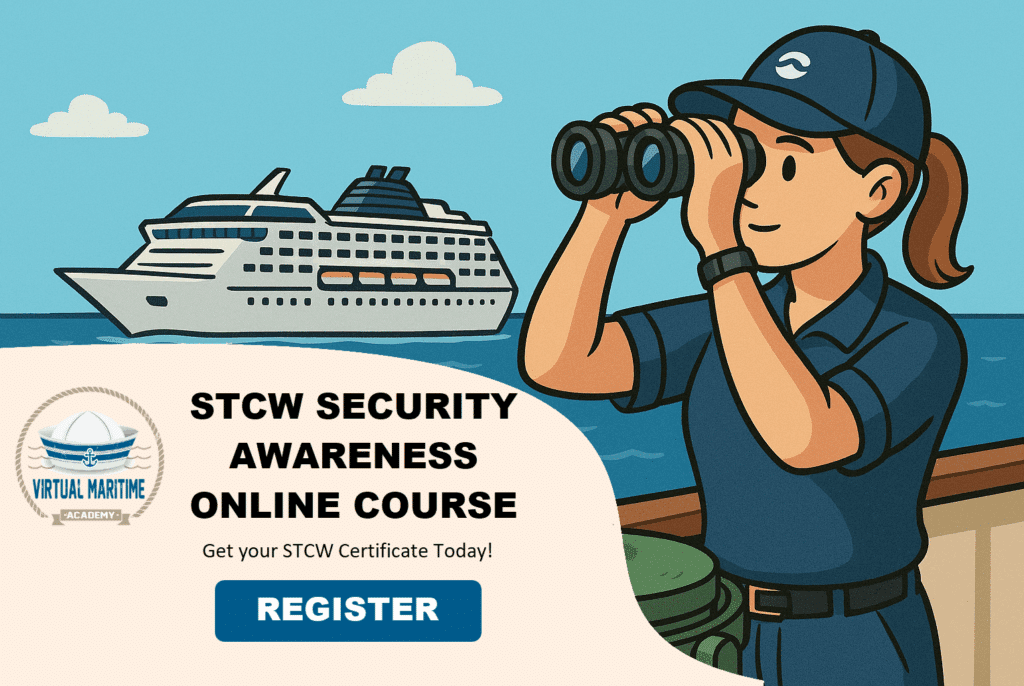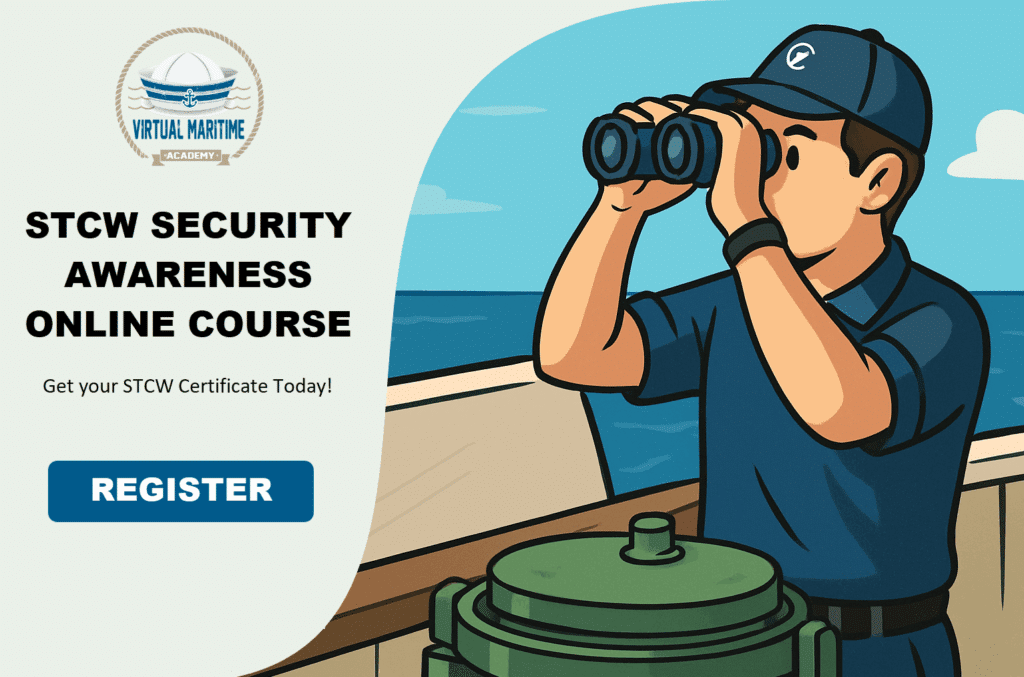In the ever-evolving world of maritime security, compliance with the International Ship and Port Facility Security (ISPS) Code is vital for ensuring the safety and protection of vessels and port facilities across the globe. One of the cornerstone aspects of achieving ISPS Code compliance starts with Company Security Officer (CSO) certification. This article delves into the significance of the ISPS Code, the critical role played by the CSO in maintaining compliance, the steps required for obtaining CSO certification, and the best practices that companies should adopt to uphold ISPS standards. Whether you’re a security professional aiming to further your career or a company looking to enhance its security protocols, understanding these elements is essential.
Learn more about our Courses here!

Key Takeaways
- The ISPS Code is crucial for maritime security and international shipping safety.
- The Company Security Officer (CSO) plays a vital role in overseeing ISPS compliance within an organization.
- Achieving CSO certification involves a series of training and assessment steps.
- Ongoing education and awareness are essential for CSOs to maintain ISPS compliance effectively.
- Implementing best practices can significantly enhance an organization’s adherence to the ISPS Code.
Understanding the ISPS Code and its Importance
The International Ship and Port Facility Security (ISPS) Code plays a pivotal role in safeguarding maritime security by establishing standards for the protection of ships and port facilities against potential threats. Understanding the ISPS Code is crucial for maritime professionals and companies involved in shipping to ensure compliance and enhance operational safety. One of the key components of ISPS Code compliance is the certification of a Company Security Officer (CSO). This certification is essential as the CSO is responsible for implementing and maintaining the security measures outlined in the ISPS Code within their organization. By ensuring that the CSO is adequately trained and certified, companies can strengthen their security protocols, minimize risks associated with marine transportation, and align with international regulatory standards. Thus, ISPS Code compliance starts with Company Security Officer (CSO) certification, setting a solid foundation for maritime security initiatives.
Role of the Company Security Officer (CSO) in ISPS Compliance
The Role of the Company Security Officer (CSO) is pivotal in ensuring that maritime operations adhere to the International Ship and Port Facility Security (ISPS) Code. ISPS Code Compliance Starts with Company Security Officer (CSO) Certification, which equips the CSO with the necessary skills and knowledge to implement and manage security plans that protect ships and port facilities from security threats. As the primary figure responsible for security management within a shipping company, the CSO must not only be well-versed in the regulations set forth by the ISPS Code but also be proactive in conducting risk assessments and developing security measures. This includes liaising with international authorities, ensuring proper training for security personnel, and regularly reviewing security protocols to adapt to evolving threats. By obtaining appropriate CSO certification, individuals can effectively lead their organizations in achieving compliance and fostering a culture of security awareness, thereby safeguarding the maritime industry against potential breaches.
‘Security is not a product, but a process.’ – Bruce Schneier
Learn more about our Courses here!
Steps to Achieve CSO Certification
Achieving Company Security Officer (CSO) certification is essential for organizations aiming to ensure compliance with the ISPS Code. The process begins with a thorough understanding of the ISPS Code itself, which sets the international standards for ship and port facility security. To embark on this journey, the first step is to enroll in a recognized training program that focuses on maritime security principles and practices. These programs often culminate in an examination, where learners must demonstrate their grasp of security assessments, contingency planning, and risk management specific to maritime operations. Once certified, the CSO can implement robust security measures tailored to the specific needs of their company, fostering a culture of compliance and safety. Additionally, maintaining ongoing education and staying updated with evolving security regulations will further solidify a CSO’s role in ensuring the organization upholds the highest standards of ISPS Code compliance.
Best Practices for Maintaining ISPS Compliance
Maintaining ISPS Code compliance is essential for maritime security, and it all starts with having a qualified Company Security Officer (CSO) at the helm. The CSO certification not only equips the officer with the necessary knowledge of the International Ship and Port Facility Security Code (ISPS) but also ensures they are well-versed in the latest security protocols and best practices. A robust CSO plays a pivotal role in developing and implementing effective security plans, conducting drills, and ultimately fostering a culture of compliance within the organization. Regular training sessions for staff on ISPS regulations and security measures further reinforce the importance of vigilance among crew members. Additionally, employing a risk assessment procedure allows the CSO to identify potential threats and vulnerabilities, thus enabling proactive measures to mitigate risks. By prioritizing CSO certification, companies can significantly enhance their commitment to ISPS Code compliance, ensuring not only the safety of vessels but also the security of ports worldwide.
About Virtual Maritime Academy
Virtual Maritime Academy is a leading provider of online maritime education and training, offering a wide range of courses designed to meet the needs of the global maritime industry. With a commitment to quality and innovation, Virtual Maritime Academy is dedicated to preparing seafarers and maritime professionals for success in their careers. Now a DNV Certified Maritime Training Provider, the academy upholds the highest standards of excellence in training and education.











